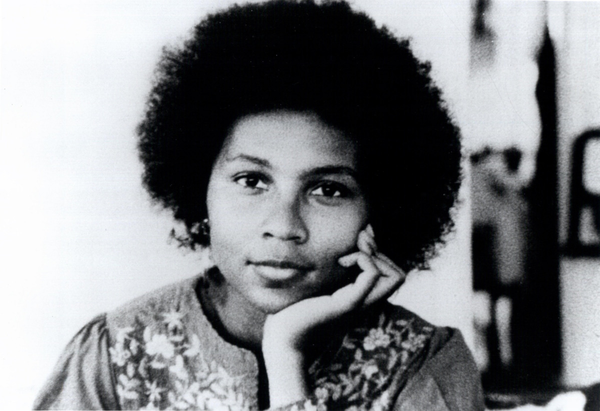
By Dr Julie Whiteman
Birmingham Business School, University of Birmingham
By giving me an awareness of the multiplicity of sexisms women face and the ways that race intersects with gender and sexuality to create complex discriminations, bell hooks introduced me to intersectional feminism
This International Women’s Day, I would like to reflect on an inspirational woman we lost last year from the international community of female academics working to challenge sexism in all its forms, and her impact on my academic career.
bell hooks was a globally recognised and celebrated academic, feminist and activist working across cultural studies, feminism, pedagogy and related topics. She published over 30 books, her contribution to academic life was immense, and her contribution to my life was no less significant; it’s no understatement to say bell hooks taught me how to see, her writing touched me in a way that has rarely happened. When I read her book Teaching to Transgress, which I only discovered years after knowing her as a cultural critic, her conceptualisation of education as freedom spoke to me in my core because this had always been my own experience.
Influencing my outlook
In this piece, I will focus on hooks’ work on representation because that is where she has influenced me most. My own research focuses on the ways representation informs social life, the ways it normalises some behaviours and demonises others and considers the implications of this for social interaction and subjective experience. I have worked and studied in and around media, marketing and representation all my adult life and developed a critical eye that I couple with my feminist standpoint to interrogate mediated representations. I thought I was skilled at this until I read Outlaw Culture: Resisting Representation’s by bell hooks, a collection of essays that interrogates popular culture and challenges commonly accepted belief systems on race, class, gender and sexuality.
Reading bell’s incisive analysis of cultural texts I thought I knew was like being told there is no Santa – I was initiated into a new adult world and there was no turning back. I began to see the subtle but powerful ways gender intersected with race and class and sexuality to create ever more nuanced forms of sexist discrimination.
By giving me an awareness of the multiplicity of sexisms women face and the ways that race intersects with gender and sexuality to create complex discriminations, bell hooks introduced me to intersectional feminism and led me to explore black feminist texts I might otherwise not have.
Through this experience I have broadened my understanding not only of sexism, but of the multiple axes of oppression in our society and enhanced my ability to engage critically with cultural texts. I use this learning in my research and hope that by shedding light on discriminatory practices of representation, I too am contributing to the global movement against sexism and sexist oppression hooks dedicated her life to challenging, and that someone might by moved by my own work to progress their activism.
Influencing my research
I am currently developing a research project that questions how representations of ageing female sexuality inform women’s sexual subjectivity, and I am sure hooks would approve. Her work on love and sexuality speak to her commitment to challenging damaging normative beliefs in this area as much as any other.
In my research, I aim to work with and learn from women who came of age in the 1990s, the early days of postfeminism, a contemporary feminism foregrounding individuality, autonomy and consumerism, and linking femininity to desirable sexuality as identified in young, white, slim, anglo-American, conventionally attractive bodies. I want to ask these women, who grew up with these definitions of what makes women valuable, how did they feel about themselves then, did they meet or conform to those expectations, and how do they feel about themselves now, as middle-aged women, aged out of normatively accepted definitions of a desirable youthful femininity? Do they see themselves as valuable and valued members of society?
bell hooks contributed to making commonplace the knowledge that representation matters, that it has real-world consequences for how we feel about and relate to ourselves and others, that discriminatory representation normalises real-world discrimination. She will always be a shining light of inspiration to me and one of the most important women in my life and if this short piece inspires you to go out and read something of her work, I too will have achieved something wonderful.
Rest in peace, bell hooks.
The views and opinions expressed in this article are those of the author and do not necessarily reflect the official policy or position of the University of Birmingham.
